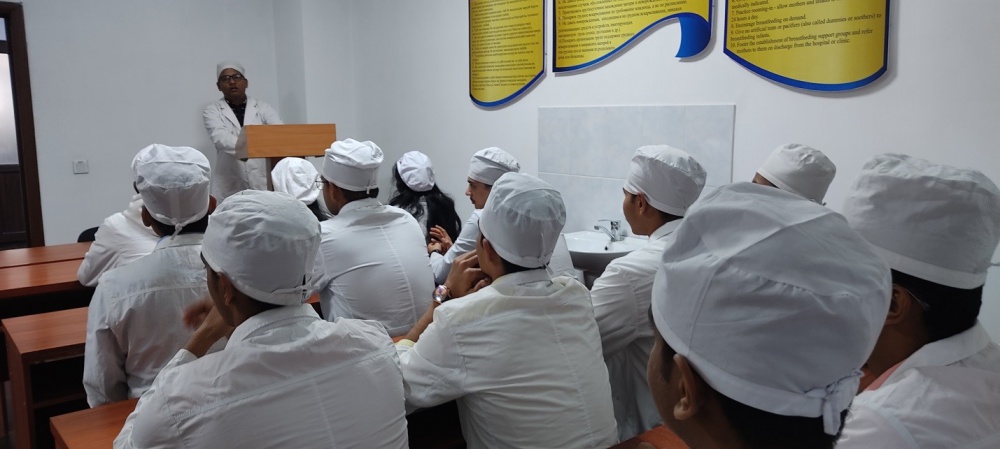THE FESTIVAL OF LIGHTS AND HAPPINESS DIWALI
At the department of propaedeutics of children’s diseases of SEI «ATSMU» 07.11.23 year an open lesson was held on the topic of «The festival of lights and happiness Diwali» with the participation of teachers of the department and students of the 7th group of the 2nd year of bachelors (teacher – Kasymova P.V). Presentation was prepared by students of group 7th: Tanishk Goyal.
INTRODUCTION
Welcome to «The Festival of Lights: A Sparkling Celebration of Diwali»! Get ready to immerse yourself in the vibrant and joyous atmosphere of Diwali, the festival of lights. Diwali is a Hindu festival celebrated worldwide, symbolizing the victory of light over darkness and good over evil. Join us as we explore the traditions, customs, and significance of this dazzling festival.
ORIGINS OF DIWALI
Diwali, derived from the Sanskrit word «Deepavali», means «row of lights». It originated in ancient India and is associated with various legends and mythological stories. The most popular legend is the return of Lord Rama to Ayodhya after defeating the demon king Ravana. The people of Ayodhya welcomed him by lighting diyas and bursting firecrackers. Diwali also marks the beginning of the Hindu New Year.
PREPARATIONS AND DECORATIONS
Diwali is a time of extensive preparations and decorations. Houses are cleaned and decorated with colorful rangoli (artwork made from colored powders), flowers, and lights.
Diyas are placed around the house to symbolize the triumph of light over darkness. People also buy new clothes and exchange gifts with family and friends. The atmosphere is filled with excitement and anticipation.
During Diwali, people perform various religious rituals and offer prayers to deities. Lakshmi, the goddess of wealth and prosperity, is worshipped to seek blessings for a prosperous year ahead. Temples are adorned with flowers and lights, and special ceremonies are conducted. Families gather for puja (prayer) and seek divine blessings. The spiritual aspect of Diwali adds depth to the celebrations.
Diwali is a time for indulging in a variety of mouthwatering sweets and snacks. Traditional delicacies like gulab jamun, barfi, jalebi, and ladoo are prepared and shared with loved ones. These delectable treats add a touch of sweetness to the festive celebrations. The aroma of freshly made sweets fills the air, enticing everyone to savor the flavors of Diwali.
Fireworks and ficrackers are an integral part of Diwali celebrations. The night sky comes alive with dazzling displays of lights and colors. Fireworks symbolize the triumph of light over darkness and are believed to ward off evil spirits. People gather together to enjoy the mesmerizing spectacle and create a festive atmosphere filled with joy and excitement.
Diwali holds deep symbolic significance. The lighting of diyas represents the inner light that dispels ignorance and brings forth knowledge. The bursting of firecrackers signifies the triumph of good over evil and the vanquishing of negativity. Diwali is a reminder to embrace positivity, spread happiness, and let our inner light shine brightly.
While Diwali is a joyous festival, it is important to be mindful of its environmental impact. The bursting of firecrackers leads to air and noise pollution, causing harm to the environment and animals. Opting for eco-friendly celebrations by using fewer fireworks and promoting sustainable practices can help preserve the beauty of our surroundings and ensure a greener Diwali.
Department of propaedeutics of children's diseases

